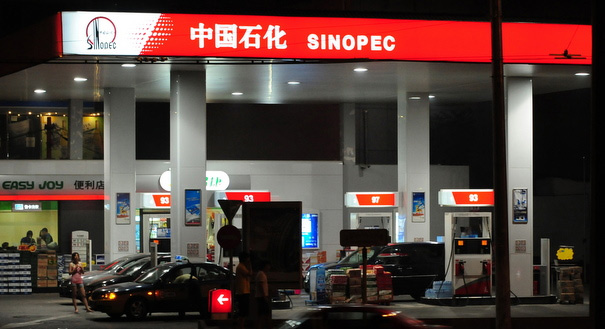IMGXYZ4135IMGZYXPetroleum is the blood of the modern economy as well as an important strategic resource. As Chinese oil companies experiment with investing abroad, these ventures have met with a mix of success and failure. To discuss these outcomes and the reasons behind them, Carnegie-Tsinghua’s Chen Qi hosted a roundtable discussion evaluating and comparing the global activities of Chinese and international oil companies. The roundtable featured representatives and scholars from the China National Petroleum Corporation, China National Offshore Oil Corporation, the Horizon International Research Institute, and Chinese universities.
Context of China’s Oil
- Progress for Chinese Companies: A Chinese panelist said that Chinese oil companies have made great progress in terms of overseas investment and engineering services in recent years. For example, Sinopec has 4.5 million workers total, generating an annual profit of 31 billion RMB. Another participant added that Sinopec’s Great Wall drilling geothermal well project demonstrated the practical use of newer technology.
- Changes in Strategy: One Chinese participant pointed out a significant change in the Chinese oil market. Previously, the three major oil companies in China would bid for projects, resulting in vicious competition. Now, the oil market is segmented into smaller markets to reduce competition and increase profitability. Another Chinese panelist observed that Chinese oil companies are now focusing on the high-end aspect of oil drilling such as drilling and side leakages and thus can begin building an international brand.
- Remaining Problems: Panelists listed several remaining problems facing the oil industry:
- Education: The oil industry-applicable majors available at Chinese universities are too narrow, preventing students entering the oil industry from receiving an interdisciplinary education.
- Geography: Oil is mainly located in the mountainous areas of China, which complicates the mining process.
- Political Risk: With the stable oil regions dominated by the Western market, Chinese enterprises have chosen to invest in unstable states. Although countries like Sudan, Kazakhstan, and Venezuela have delivered high returns, the long-term viability of investing in these areas is more questionable.
- Environment: Currently Chinese oil companies do not attach importance to environmental protection. As a result, the bidding competition for contracts does not award the environmentally-aware.
- Forecast of Chinese Oil Investment: One Chinese panelist noted that Chinese oil companies were focusing investments on North America, increasing investment parity, taking more environmental risks, and increasing reliance on migrant workers.
- Shale Gas: Another Chinese panelist stated that the low price of shale gas in the United States could impact the development of the Chinese petroleum industry as a whole. He added that if China starts to import shale gas from the United States, China could gain access to natural gas at a lower price. However, this would indirectly raise the price of shale gas for the United States by reducing its domestic supply.
- Entering the Middle East: In the past, one Chinese panelist explained, China believed that the Middle East oil market was dominated by the United States. Oft-overlooked by the Chinese, this panelist predicted that China will be increasingly be looking into the Middle Eastern market as it becomes clearer that the United States is not one of the region’s major oil buyers.
Recommendations for Chinese Oil Companies
- Structural and Personnel Improvements: A panelist stated that Chinese enterprises should attach greater importance to the cultivation of international talent, improve the level of cross-border management, and improve the supervision process. Another added that Chinese enterprises should establish overseas service and risk assessment mechanisms to enhance their overall competitiveness.
- Importance of Cultural Sensitivity: Chinese enterprises, a panelist advised, need to adapt better to local customs and understand local history. This will improve their overall image and publicity. He added that Chinese enterprises should publicize the positive impact that the company is having on the local community.
- Integrating Oil Drilling Into Development: One panelist advised that as Chinese oil companies go abroad to invest, they should be cognizant of that country’s overall development. He added that the current three major state-owned oil companies have separate investments and do not work together.
Discussants: Sun Jinsheng, Guan Qingyou, Zha Daojiang, Pang Changwei, Zhou Lei, Zhang Meng, Matt Ferchen, Tang Xiaoyang, Josh Gordan
